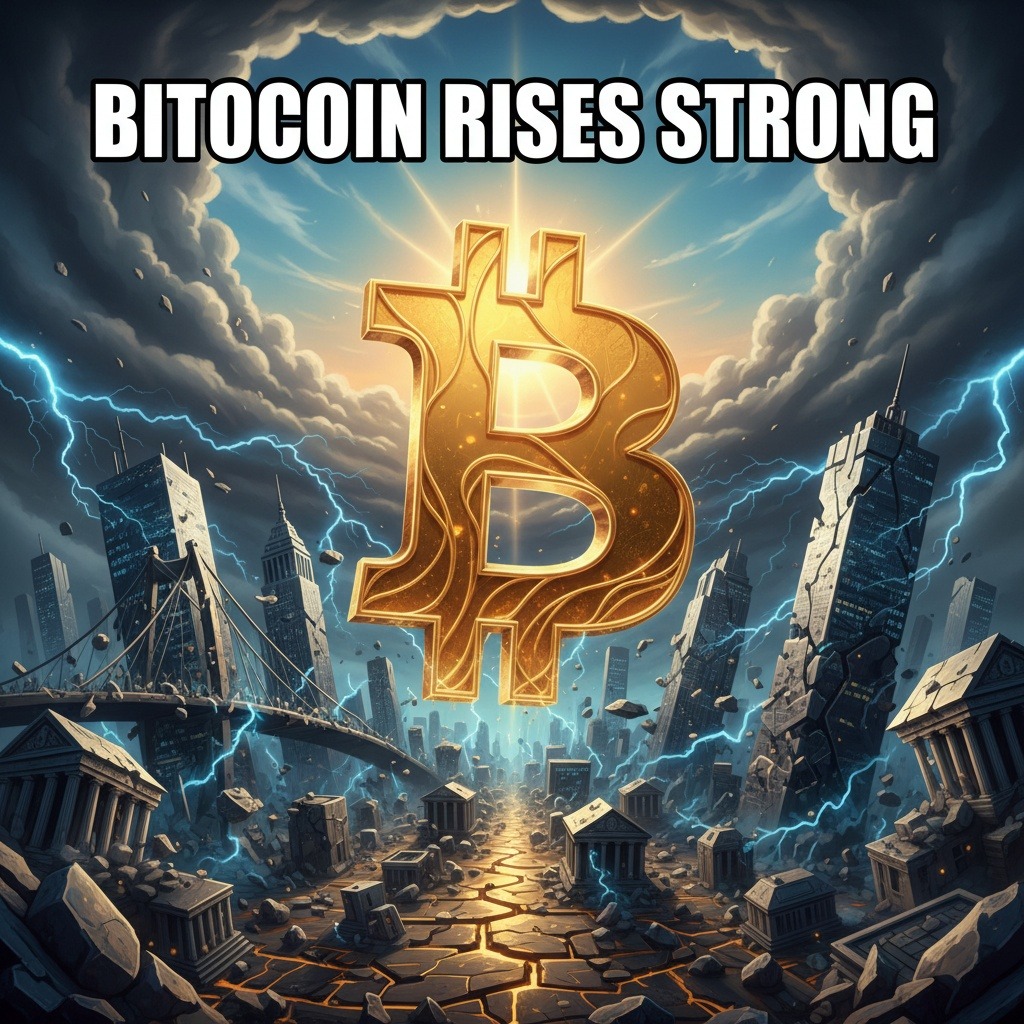As the global financial landscape appears set for a significant shift, market analyst Jordi Visser asserts that Bitcoin (BTC) is primed for increased value and adoption, regardless of the macroeconomic conditions that may emerge in the years to come. This perspective, presented during an interview with Anthony Pompliano on “The Pomp Podcast,” accentuates the prevailing sentiment of disillusionment with traditional financial institutions.
Visser, who is known for his insights into market dynamics, points out a growing lack of trust among individuals towards institutions such as banks, governments, and even their employers. He articulates that as confidence in these legacy systems diminishes, more individuals are likely to turn towards Bitcoin—a decentralized and permissionless asset that operates independently of governmental influence and traditional financial frameworks.
The term “Fourth Turning” alludes to a concept introduced by William Strauss and Neil Howe, outlining recurring cycles of societal change and upheaval influenced by generational shifts. According to Visser, these patterns are increasingly relevant in today’s climate, where public trust is eroding and economic pressures are mounting.
“Bitcoin is fundamentally a trustless asset,” Visser explained. “It emerged from a need to address issues of trust specifically with banks, but now that sentiment has expanded. People are questioning the reliability of their jobs, government actions, and even the stability of fiat currencies. When trust erodes across various sectors, the pathway to regaining it seems exceedingly complicated.”
Visser’s comments come against the backdrop of declining consumer confidence, rising global tensions, and unprecedented levels of government debt that continue to press on personal financial security. As inflation affects the purchasing power of individuals, the call for an alternative financial system grounded in immutable value grows stronger.
The analyst refers to current economic disparities, framing them within the context of a “K-shaped economy.” In this model, wealth acquisition and prosperity diverge sharply between different segments of the population; those at the upper end are experiencing growth in assets while those at the lower end are subjected to inflationary pressures. This growing divide is a key aspect of the Fourth Turning narrative, where segments of society feel increasingly alienated from the economic mainstream.
Visser points to a recent consumer sentiment report from the University of Michigan, indicating that only 24% of surveyed individuals foresee stability in their spending habits for 2026. The survey further indicates a widespread expectation of rising unemployment, with over 60% of respondents anticipating an uptick in joblessness. This marks a significant increase in pessimism compared to earlier projections from 2025, where only around 30% expected job declines.
In conclusion, as economic trends continue to unfold and public sentiment remains wary of traditional financial systems, Visser’s analysis suggests that Bitcoin could emerge as a viable alternative for those seeking financial autonomy in an uncertain world.



